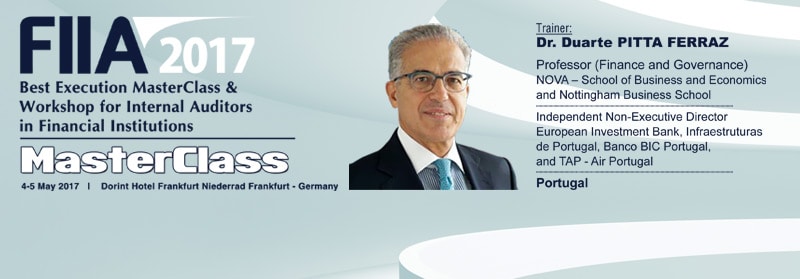In the current regulatory paradigm of the banking industry, Internal Audit should play a leadership role in assisting and ensuring Supervisory and Executive Boards –therefore NED and Executive Directors– that the demanding regulatory landscape that impact banks’ business models, as well as the risk function –notably Risk and Compliance– perform their duties within a robust risk and internal control frameworks, on the top of the responsibilities Internal Audit always had within their scope of activities.
This objective becomes particularly challenging for Internal Audit, as the attention of Boards –both Supervisory and Executive– are very focused on issues resulting from new regulatory challenges in the Risk and Compliance areas, as well capital and liquidity impacting their business model. Additionally, the pressure on costs and the need to increase the headcount in Risk and Compliance functions is restricting the minimum headcount requirements of Internal Audit, the need for more demanding skills of internal auditors in areas that were not of concern in the previous paradigm, being Internal Audit often relegated to a secondary plan.
As the business model of banks develop and the regulatory framework becomes more demanding, it is critical for Internal Audit to achieve perform their duties that their Leaders learn, understand, and include in their audit plans the challenges above, redesign the strategy and tactics of Internal Audit role, develop internal auditors skills to fit the new paradigm and business models, prepare a robust narrative to discuss with boards, and assisting and ensure Supervisory and Executive Boards that the 4 Lines-of-Defence are operating efficiently and effectively.
Special features:
- Best practices
- Lively discussion
- Regulatory insight
- Case studies
Training includes:
- Specific and exceptional educational insights combining modern theories and practical examples
- Workshop using advanced international experience and knowledge of high-level expert
- Special materials and templates for future use by the participants in their work
Some of the key takeaways include:
- How to leverage Internal Audit assisting and ensuring Supervisory and Executive Boards that the 4 Lines-of-Defence are operating efficiently and effectively
- Understand the need for banks to be prepared to be audited in the governance area –agendas, minutes, commissions, plans of action, fit and proper– by Supervisors
- Get know the impact of 4LOD in the size of Internal Audit Division to answer current demands from Regulators and Supervisors
- Leverage the control functions of the bank; avoid duplications, IA to brief the EC and BoD adding value with cost saving ideas
- Understand the impact of governance in the change of paradigm of the banking system environment – 4 Lines of Defence philosophy and its business model
- Formalization of the risk appetite framework (“RAF”), embedding risk appetite, monitoring and reporting risk appetite, and the fashion the Audit Plan should reflect these regulatory challenges
- Evaluate internal auditor’s technical and soft skills development in Risk, Compliance, and Cyber security
- Gain insight about the impact of COSO in the Audit Plan (e.g. control environment, activities and activity monitoring, risk assessment, and the role of the board)
- Learn arguments to leverage Internal Audit in the relations with AC, BOD and NED
- How Internal Audit must become more visible in the organisations in the current paradigm
- Management of the ethical dilemmas resulting from the principles of the 4th Line-of-Defence philosophy
The Trainer:
Prof. Duarte Pitta Ferraz is a Doctor of Business Administration and a qualified Portuguese Statutory Auditor. Has published scientific papers at Measuring Business Excellence, Corporate Ownership & Control, and IJBEX (International Journal of Business Excellence) about governance issues. And has chaired various audit committees.
He is a Professor of Finance and Governance at NOVA – School of Business and Economics and at Nottingham Business School. He is an Independent Non-Executive Director at European Investment Bank (Audit Committee), Infraestruturas de Portugal (Supervisory Board and Audit Committee), Banco BIC Português (Board of Directors, and Audit and Governance Committees). As well he is a member of the Privatization Committees of TAP—Air Portugal and CTT – Portugal Postal Service.
Previously was Managing Director of Banco Comercial Português (20 years), General Manager of Corporate and Business Banking and Head of Corporate Investment Banking. Also he was Member of the:
- Corporate and Investment Banking Committee
- Board of Directors (BoD) and of the Executive Committee of the BAFT – Bankers Association for Finance and Trade (Washington, DC)
- BoD and Executive Committees of Nova Bank (Greece), Bank Europa (Turkey), Banco Millennium Angola, SOFID ‒ Development Bank
- Private Banking and Asset Management Executive Committee
Partner at Dias, Ferraz & Associados, SROC (Deloitte in Portugal – 9 years) and Director of Internal Audit for North America of Philip Morris USA (4 years).




